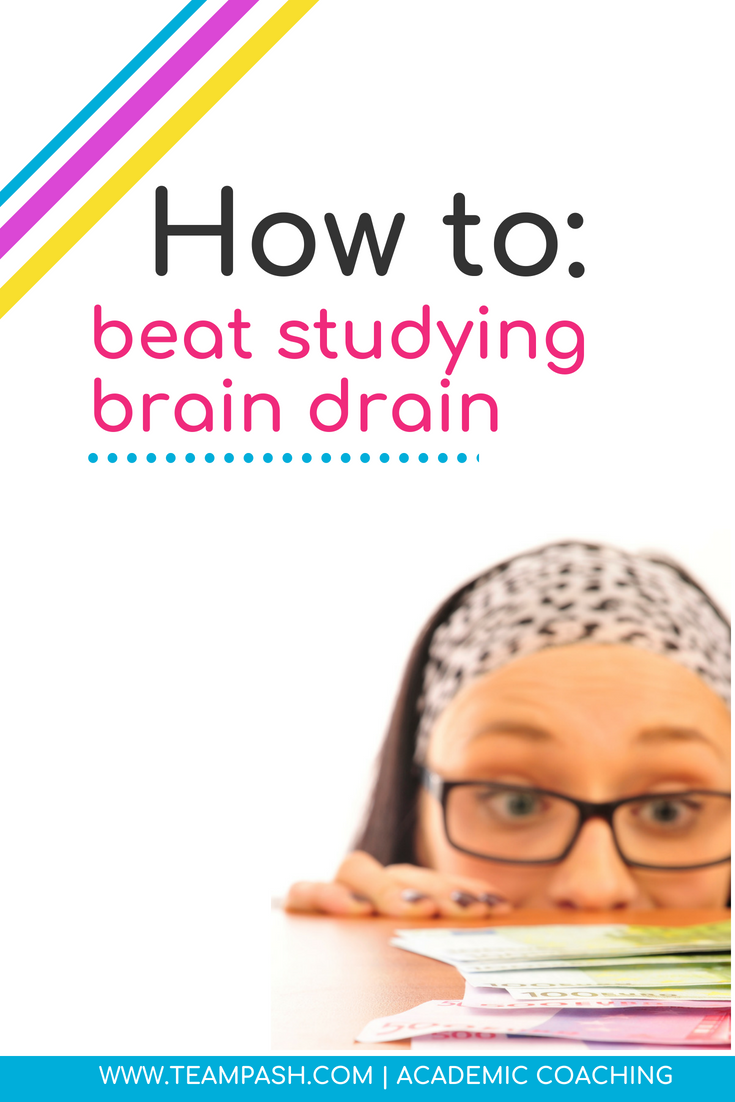How to Beat Studying Brain Drain
When we look at studying, science shows that re-reading the textbook is one of the WORST things for our brains.
This is why the study cycle is a critical piece in helping students learn. The study cycle looks at 3 ways to make your studying more efficient, effective and productive.
If you want to learn more about the study cycle click here to access the video from Finals on Fire week. It includes worksheets to help you start to rethink your learning NOW!
1. Retrieval Practice
This strategy helps you ask yourself questions to see what you know and don’t know. It’s never enough to read the text or listen to the lecture. That is only the first part of the study cycle, and that is where most students stop learning (to learn more information about the study cycle visit the learning library). Retrieval also cuts down on the amount of time you have to study and makes it manageable.
2. Spaced Retrieval/Interval Reflection
If you understand the material AWESOME! However, we never want to put it away forever. That’s where spaced retrieval comes into play. When you use the spaced retrieval strategy, you strengthen your study skills and allow the information to stay in long-term memory.
As a matter of fact, it’s normal to forget. Forgetting is part of learning. But when you strive to remember, you actually become better at storing information.
3. Creative Learning
When our brain learns the SAME material, in the SAME way, it goes into what is known as neural fatigue. The brain shuts down and the information isn’t absorbed. When our brains aren’t engaged it becomes BORING! This leads to procrastination.
Can you see the connection between how we currently study and procrastination? Our children’s brains are doing what they are supposed to do when tired- they shut down.
The study cycle, along with tools to keep things anti-boring, keeps the brain engaged and ready to learn!
If you want to learn more about how the study cycle taps into the brain’s learning needs access the videos from Finals on Fire Week now!
Ready for a studying reboot this summer? Enroll in the Anti-Boring Approach to Studying workshop!

